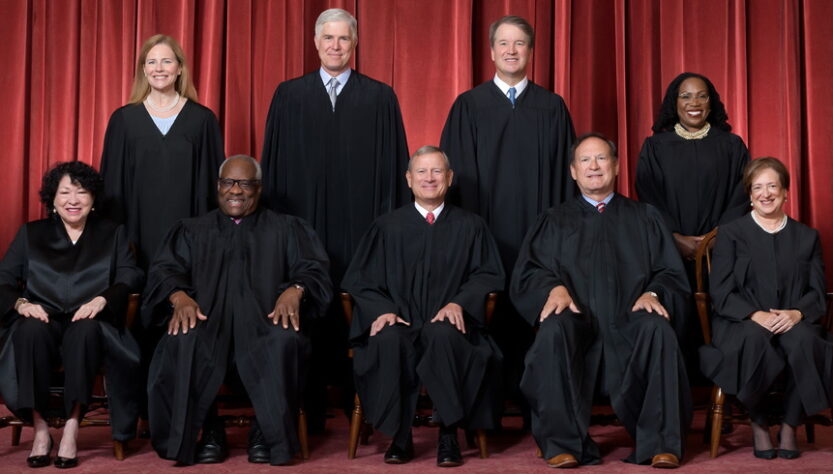The Supreme Court ruled Wednesday that politicians may accept a gratuity after making an official act, and that laws against bribery do not apply.
In the case, Snyder v. U.S., former Portage, Indiana mayor James Snyder gave Great Lakes Peterbilt two contracts with the city, purchasing five garbage trucks for $1.1 million in 2013. The following year, Peterbilt paid Synder $13,000. Though the DOJ and FBI said the payment was likely a gratuity for the contract, Snyder said the money was merely payment for his consulting services.
A federal jury disagreed, convicting him of violating a 1984 law that banned gratuities to state and local officials. The law mirrors a statute barring federal officials from taking either bribes — defined as a payment or gift before an official act — or gratuities — defined as a gift after such an act.
READ MORE: Clarence Thomas Accepted Millions in Gifts – Far More Than All Other Justices Combined
Snyder was sentenced to 21 months in prison. He appealed, arguing that the specific law only applied to bribes, not gratuities. Though the Seventh Circuit upheld the conviction, the Supreme Court reversed it, agreeing with Snyder.
The Supreme Court ruling was 6-3, along ideological lines. Justice Brett Kavanaugh wrote the Court’s opinion, arguing that though local governments may regulate the gifts public officials can accept, the federal statute does not, leaving it to the states to determine what gratuities are legal.
“Gratuities after the official act are not the same as bribes before the official act. After all, unlike gratuities, bribes can corrupt the official act—meaning that the official takes the act for private gain, not for the public good. That said, gratuities can sometimes also raise ethical and appearance concerns. For that reason, Congress, States, and local governments have long regulated gratuities to public officials,” Kavanaugh wrote, adding that “different governments draw lines in different places.”
Kavanaugh also argued that a 1986 amendment to the 1984 law updated it to mirror the prohibition against bribery only. In this particular case, Indiana state law prohibits bribery of local officials, but has no such rule on gratuities.
Justice Ketanji Brown Jackson wrote the dissent, arguing that the original law used “expansive, unqualified language.” She criticized the reading of the law that banned bribery but not gratuities.
“Snyder’s absurd and atextual reading of the statute is one only today’s Court could love,” Jackson wrote, citing that the text of the law “expressly targets officials who ‘corruptly’ solicit, accept, or agree to accept payments ‘intending to be influenced or rewarded.’”
“The Court’s reasoning elevates nonexistent federalism concerns over the plain text of this statute and is a quintessential example of the tail wagging the dog,” she added.
The decision comes in the wake of controversy over Supreme Court Justice Clarence Thomas accepting a number of gifts from billionaire Harlan Crow without declaring them until earlier this month.

Continue Reading
Enjoy this piece?
… then let us make a small request. The New Civil Rights Movement depends on readers like you to meet our ongoing expenses and continue producing quality progressive journalism. Three Silicon Valley giants consume 70 percent of all online advertising dollars, so we need your help to continue doing what we do.
NCRM is independent. You won’t find mainstream media bias here. From unflinching coverage of religious extremism, to spotlighting efforts to roll back our rights, NCRM continues to speak truth to power. America needs independent voices like NCRM to be sure no one is forgotten.
Every reader contribution, whatever the amount, makes a tremendous difference. Help ensure NCRM remains independent long into the future. Support progressive journalism with a one-time contribution to NCRM, or click here to become a subscriber. Thank you. Click here to donate by check.
 |

